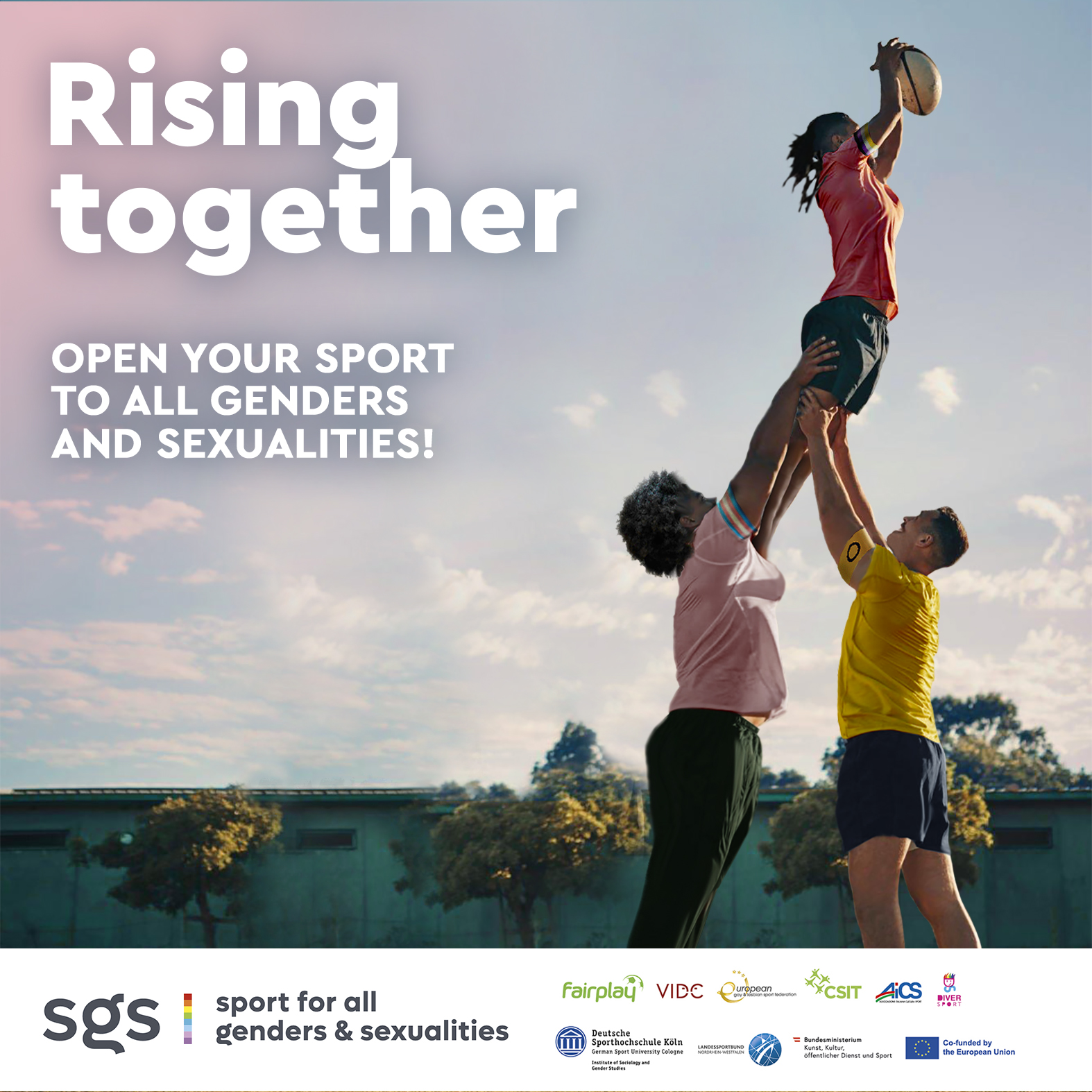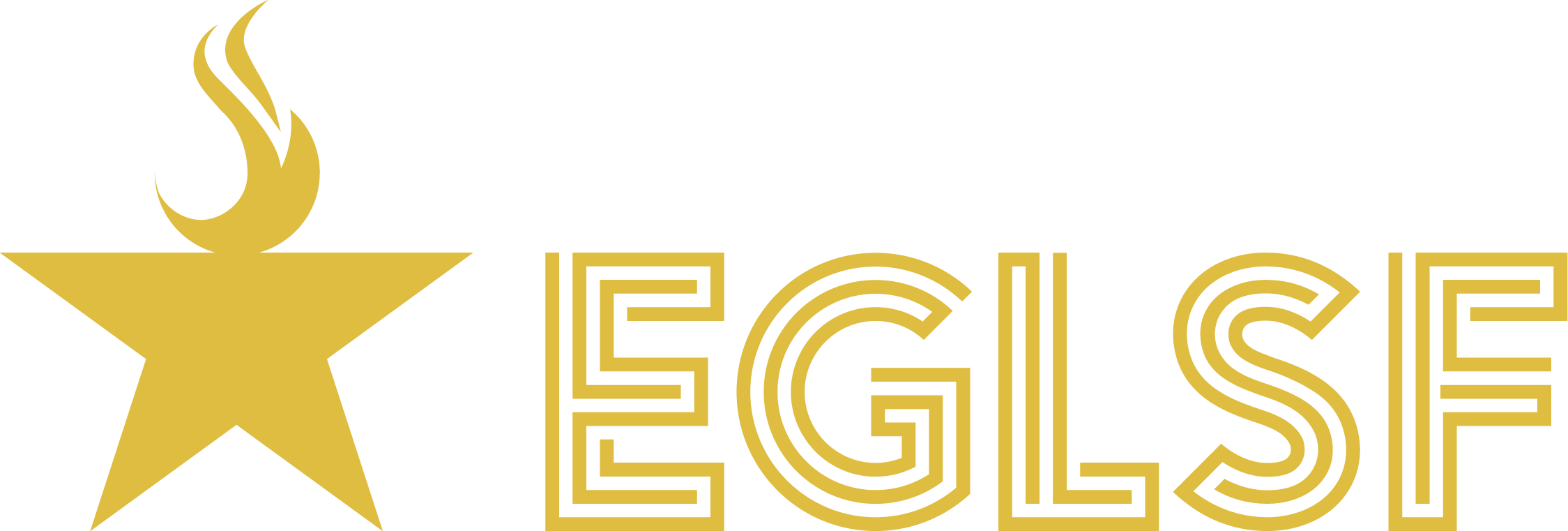
Scenario
The EU Project SGS - Sport for all Genders and Sexualities has launched the Raising Together Campaign for the EU week of Sport 2023
In the modern and highly developed 21st century it's still necessary to talk about Sport for all Genders. European sports continue to be heavily influenced by traditional concepts of gender roles, which categorize individuals strictly as either "men" or "women," reinforcing a dominant binary and masculine perspective. This prevailing narrative within sports inevitably leads to the marginalization and unfair treatment of various groups, including women and girls (resulting in sexism), transgender individuals (leading to transphobia), as well as lesbians and gay men (causing homophobia), and anyone who doesn't fit neatly into a single gender identity. In this context, the significance of amateur sports takes on a crucial role.
EWOS 2023
One of the three keywords of the 2023 EWOS (European Week of Sport) is indeed inclusion, which comes between involvement and innovation. Furthermore, the Meeting of EU Directors-General for Sport organised by the Spanish Presidency of the Council of the European Union in Valencia on Sept 21-23, focused on two main topics: Gender Equality and Combating hate speech.
It should be pointed out that in 2018, the WHO reclassified gender dysphoria as "gender incongruence" and placed it outside of mental pathologies under the category "conditions related to sexual health." In 2021, the International Olympic Committee eliminated mandatory hormone testing for transgender athletes, emphasizing the principle of body integrity and requiring specific evidence to presume competitive advantage. Despite that, transgender and intersex athletes are still one of the main hate speech targets chosen by the extremist propaganda.
Reactions to IOC Guidelines
Currently, different sport federations have adopted varying policies in response to the new IOC guidelines. Some, like the world federations for Athletics and Aquatics, have banned transgender women from women's categories. Others, like the German football federation, are experimenting with transgender women inclusion at the amateur level. Recently, the international chess federation also banned transgender women without providing an explanation regarding the relevance of physical characteristics in the sport.
The EU co-funded project SGS - Sport for all Genders and Sexualities
is promoted by Vienna Institute for International Dialogue and Cooperation (VIDC, Austria, Coordinator), German Sports University (GSU, Germany), European Gay and Lesbian Sport Federation (EGLSF) Associazione Italiana Cultura e Sport (AICS, Italy), Diversport (DS, Spain), Landessportbund Nordrhein-Westfalen (LSB, Germany), International Workers and Amateurs in Sports Confederation (CSIT). The project can be named one of such initiatives that seeks to level the playing field, quite literally, moving forward the principle of equal access to sport, which is the core of amateur sport.
The project's main goal is to foster inclusivity for all genders and sexualities in European grassroots sports. To achieve this, SGS aims to create tools and initiatives, such as dialogue platforms, guidelines, awareness campaigns, and inclusive training, aimed at dismantling barriers and discrimination faced by transgender athletes, LGBTQ+ individuals, and women who are often excluded due to traditional gender norms in sports.
The Campaign
Rising Together is an important milestone of the project: the campaign is aimed to spread and disseminate the project output, starting from the Good Practice Report and the new research from the German Sport University. The official results of the survey will be presented on November 9-10 in Barcelona, along with outcomes and results of first campaign weeks, during the International Amateur Sports Forum “Sport Impacts All”, organized by CSIT – International Workers and Amateurs in Sports Confederation. Several presentations are expected in 2023 and 2024 within national sport competitions and events organized by project partners in Italy, Austria, Germany, Spain: the campaign will go on until Sept 2024 by supporting project pilots events on the field and human rights initiatives around Europe.
By having asked different groups of people a set of questions, we know from the first conclusions that media representations of women, transgender and intersex people are often biased and discriminatory. Moreover, while prior research, such as the Outsport initiative, primarily focused on visibility and support for LGBTI athletes, the current project expands its reach to encompass and investigate the role of prejudice within organized sports, practitioners, managers, and more.
Rising Together, objectives: raising awareness and disseminating knowledge
The campaign will be launched for the European Week of Sport with social media actions and stories from transgender, intersex athletes and allies in sports, in 4 different languages. It strives to emphasize the fact that every individual has the fundamental right to engage in sports, irrespective of their gender identity or sexual orientation. Therefore, SGS aims to spread knowledge and tools that can facilitate inclusion within the world of sports. Therefore, the campaign's target audience is diverse, reflecting the multifaceted nature of the challenge:
- Sport Practitioners and Educators: Those seeking information and guidance on transgender and intersex individuals in sports.
- Sport Clubs: Organizations eager to embrace inclusion but lacking access to essential knowledge and tools.
- Sport Organizations and Federations: Entities capable of reshaping policies based on new research outcomes.
- NGOs, Institutions, and Decision-Makers: Those looking for credible information to counteract conservative propaganda.
An audience analysis questionnaire has been carried out towards 40 people in the participating countries (Austria, Italy, Spain, the Netherlands, Germany) belonging to the target groups, in order to investigate the narratives about the topic and build the campaign concept.
The change we want through the Raising Together campaign: paving the way for inclusion
The campaign message is clear and resonates with a call to action: "Rising Together - Open your sport to all genders and sexualities!" It underscores that sexism and transphobia only create divisions and hinder progress. Just like in sports, our goals in life can only be achieved when no one is left behind.
In the ongoing discussions about whether transgender athletes have an advantage and how to make competitions fair, this campaign takes a different approach using rugby as an example. Rugby is a tough and physical sport often associated with masculinity. The campaign wants to show that even in a sport like rugby, there are differences among players. Some are taller and bigger, while others are thinner and faster. These differences are important in rugby, especially in situations like the lineout lift, which is shown in the campaign's visuals. In rugby, as in many other sports, having diverse body types is a resource, not a weakness.
Diversity is therefore celebrated as a source of strength, with the campaign emphasizing that opening sports to all genders and sexualities will elevate us to new heights. SGS encourages everyone to explore its tools and good practices, reinforcing that change begins right on your pitch, your field, your court.

Leave A Comment